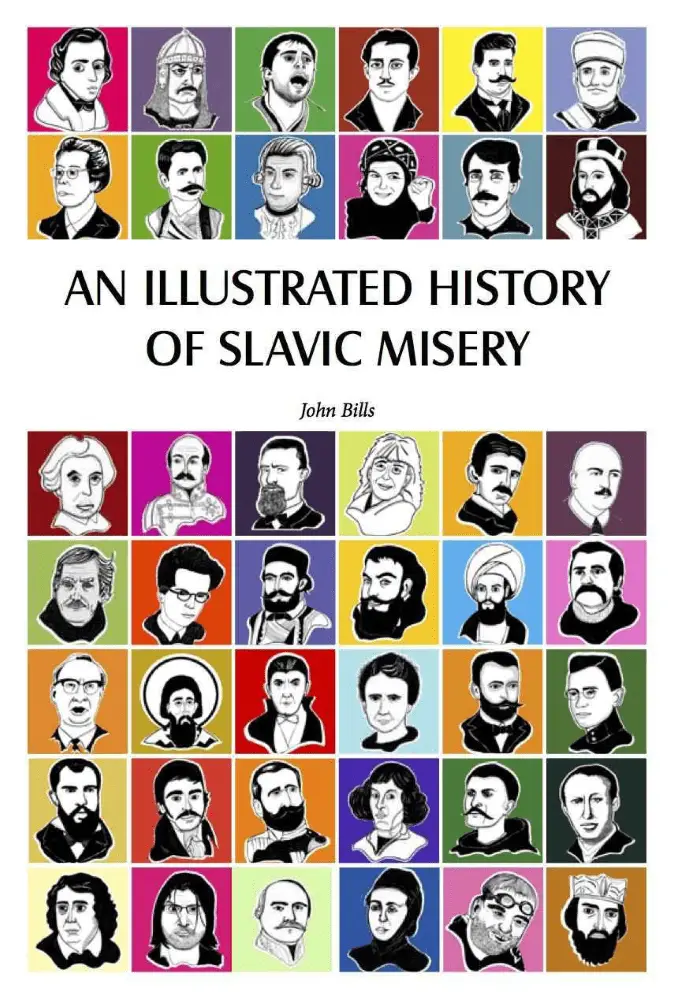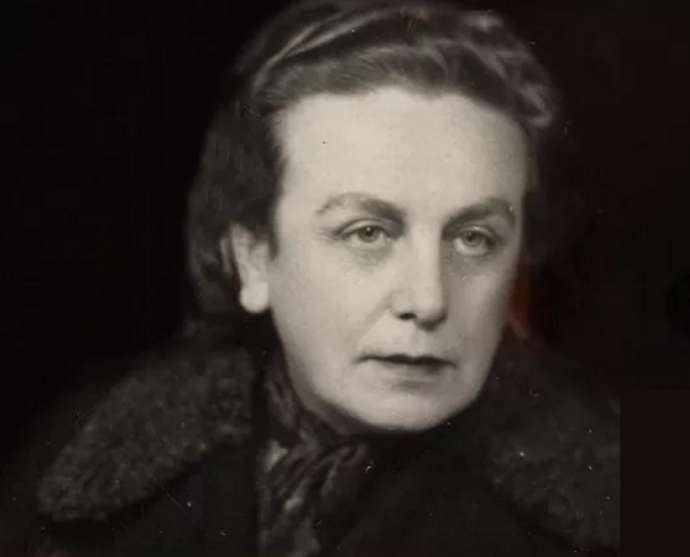To an entire generation of Slovenes, the name Angela Vode would have meant nothing. Even today bringing up the name of Ms Vode in the company of Slovenes may result only in confused stares and faces of disinterest, confused as to why you interrupted their coffee to talk about some dead woman from the past. But Angela Vode isn’t just some dead woman from the past, far from it. Angela Vode was one of those unfortunate souls who gave their entire life over to helping their fellow humans only to be consistently arrested because of it. Her life story isn’t a million miles away from mirroring Slovenia’s own in modern times.
Angela Vode was born on January 5, 1892, the third daughter of five children in a poor, working-class family. Her father was a chap by the name of Anton, who worked as a railwayman until his death in 1904. Little is known of her mother, other than the fact she passed away in 1919. Angela’s upbringing was fairly typical of a working-class Slovene girl in the Austro-Hungarian Empire at the time, which means her future job prospects were ‘teacher’ or ‘wife’, or maybe even ‘wife of teacher’. ‘Wife and teacher’ legitimately wasn’t an option, unless it was ‘teacher and wife of teacher’. Married women were forced (by law) to give up their jobs unless they were teachers marrying teachers.
This is the societal system that Angela Vode was born into, and therefore you can understand why she was just a little bit miffed about it all. Angela graduated from a teaching school in 1911 and worked as a teacher in and around Ljubljana all the way up until 1917 when she was fired because of her ties to a youth movement known as Preporod (Rebirth), who were openly anti-Austria and all in favour of a future Yugoslav state. Despite being considered a ‘red feminist’ Angela continued on the educational path post-firing, studying special education in Prague, Berlin and Vienna before returning to Slovenia to work as what was then called a ‘teacher-defectologist’, which basically means ‘teacher of children with disabilities’. Angela actually published a number of articles on the education of disabled children, as well as a book in 1936 titled ‘The Importance of Auxiliary Schools and Their Development in Yugoslavia’. Well, it was called ‘Pomem pomožnega šolstva in njegov razvoj v Jugoslaviji’, to be precise.
The education of disabled children wasn’t Angela’s numero one focus however, no matter how forward thinking she was on the matter. The 1920s saw Angela Vode fast become one of the most vocal supporters of women’s rights in what was first the Kingdom of Serbs, Croats and Slovenes and then the Kingdom of Yugoslavia (from 1929). The history of women’s rights organisations in Slovenia was not a long one, the first such organisation being established in the city of Trieste (now in Italy) in 1887. Angela was elected president of the Women’s Movement of Yugoslavia, as well as president of the Female Teachers’ Society of Slovenia (established in 1898), which carried the slogan ‘for equal work, equal pay’. The mid-1930s saw her publish a number of works on the subject of women’s rights and social injustice, although the events of the 1940s in Yugoslavia meant these books would cease to exist until after Yugoslavia had itself ceased to exist.
Again we must travel back ever so slightly. In 1922 Angela joined the then-illegal Communist Party of Yugoslavia, in what she described as an act of idealism born out of a sincere belief in the fight against injustice. She stuck with the party until 1939, when she was expelled for openly criticising the Molotov-Ribbentrop Pact that saw Hitler and Stalin agree to carve up Eastern Europe. World War Two soon came to the Yugoslav lands, and despite her frequent warnings about the importance of a united anti-fascist front, the resistance in Yugoslavia split into many parts. Despite her expulsion Vode decided to join the commie-led Liberation Front of the Slovene People, quickly becoming the top representative of the Slovene women’s movements. In late 1941 Vode joined Stara Pravda (Old Justice), but the expulsion of this group a year later signalled misery on Angela’s horizons.
She continued to do her bit to help the resistance however, organising collections of food and clothing for Slovene refugees and those in labour camps. How one gets food and clothing into a fascist labour camp I have no idea, but I digress. Vode was in Italian-occupied Ljubljana at the time, and whilst this wasn’t the greatest place in the world it was simply heaven compared to the existence of the Slovenes in the Nazi-occupied areas of the country. This led to a whole heap of Slovene refugees moving into Ljubljana, and in late 1942 the Italian authorities decided the best way to deal with this was to start executing whomever it deemed unnecessary. Like any human with a heart, Vode decided to appeal to Italian leader Benito Mussolini to stop the executions, but her protest was destroyed by the Slovene communists who wanted to be the sole source of protest and resistance in order to enhance their claim to power when the war was over.
The war was soon over (well, a couple of years or so later anyway) and things didn’t look too rosy for Angela. She went back to working as a teacher, but as the communist stranglehold on power increased her future looked increasingly bleak. The fact that she was one of the few who tried to organise legitimate political opposition to the communists didn’t help, and her standing as an intellectual on the other side of the fence all but guaranteed her a visit from the secret police. That visit came in the autumn of 1947, and Angela was arrested and imprisoned for two months. After two months of torture and abuse, Angela Vode was put on trial, by which I mean after two months of torture and abuse Angela Vode took part in a show trial. She was charged with treason, accused of being an enemy of the working class, a western spy and any other stereotypically 1940’s communist thing one could be arrested for. These were the Nagode Trials, named after the leader of the aforementioned Stara Pravda movement, Črtomir Nagode. The ‘trials’ saw 15 intellectuals found guilty of treason and sentenced to death or life imprisonment.
Vode got 20 years, and whilst she only served six of these years thanks to international fury, she didn’t exactly return to a free and joyous wonderland in 1953. Vode was declared a ‘non-person’, that is a human being without any rights whatsoever. She wasn’t allowed to find employment, enjoy a personal income or get medical insurance. She was denied her passport, and her name was prohibited from public life. Her works, such vital and important works concerning women’s rights in the country, could not be quoted in any way, shape or form. It was as if Angela Vode had never existed, and this vibrant and revolutionary mind was reduced to being completely in the care of her sister Ivana. In the late 1960s, Angela began work on her memoirs, finishing what was known as ‘The Hidden Memoir’ in 1971. It wouldn’t see the light of day until 2004.
After the death of Tito in 1980 there began to be small ripples of interest in her oft-whispered about works throughout the Slovene republic. On the 50th anniversary of her book ‘Women in Contemporary Society’, she gave a low-key interview to the magazine Nova revija, marking her first public appearance in over 30 years. One year later she passed away at her home in Ljubljana, dying in May 1985 at the age of 93. She didn’t live to see the Slovene court annul the verdicts of the Nagode Trials, although after being robbed of her final 30 years justice would be nigh on impossible.
Vode has been posthumously rehabilitated, and slowly but surely her works have begun to reach more people. Despite being written almost a century ago they are still relevant today, with Vode expressing a desire to cherish the natural differences of the genders whilst putting forward the necessity of equality at the same time. She attacked subjects that were almost holy at the time, such as the role of husband and wife in parenting, stating she did not understand ‘…why a wife by nature would be more destined for motherhood than a husband for fatherhood’. She wrote extensively about gender roles as well as the influence of nature and nurture in those roles. Vode urged women to learn about the past, believing that only by understanding society could one improve one's position. She implored that a healthy marriage could only exist with love, friendship, mutual respect, understanding and economic independence. She stripped down the question of gender roles in society, saying that ‘…a woman is as integral a part of human society, nation, state and family as a man, and her life and position are equally dependent on all political, economic, and cultural developments, and a demand for her participation in public life is absolutely natural and necessary’.
Angela Vode was and still is a vital voice in the women’s rights movement in Slovenia, and it is a tragedy that she simultaneously became a poster girl for the abusive and criminal side of the semi-totalitarian dream that was socialist Yugoslavia.
If you enjoyed this story, then consider picking up a copy, in digital or paper form, of An Illustrated History of Slavic Misery from Posh Lost Books or following the related page on Facebook, while you can read more of John’s work on his personal website.




